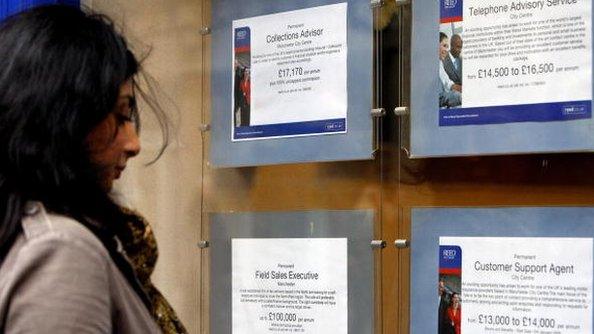'Motherhood penalty' in worse pay at work
- Published

Mothers earn 3% per hour less for each child they have compared with women working in similar jobs who do not have children, say researchers.
The study says this takes into account factors such as returning mothers being more likely to be in part-time jobs.
The French university researchers suggest that mothers could face discrimination in applying for jobs or be consigned into lower-status posts.
The report says such an income penalty is "unfair and inefficient".
Income inequalities for women have often been examined in terms of a "gender gap" - in which women on average still earn less than men for similar jobs.
In the UK, for full-time workers, the gender gap is 9%, based on typical hourly incomes.
And last year a report by the Women and Equalities Select Committee called on the government to take greater steps to tackle the pay gap and the "motherhood penalty".
'Discrimination'
This research from the University of Paris-Saclay has measured the earnings difference in terms of women with and without children - and found it to be on average 3% per child.
Using 16 years of income data in private sector companies in France, the study found that mothers were likely to earn less, while men did not have any loss of income linked to parenthood.
The study examined the possible causes of the pay gap.
This included mothers making a trade-off between rates of pay and having more flexibility over hours and location.
There were also suggestions that such "family friendly" approaches were likely to come with a loss of earnings.
Another aspect of lower pay could be that time away for maternity leave could disrupt the trajectory of a career and that mothers could miss out on the training and experience needed for promotion.
But the study found that none of these possible causes explained the extent of the pay gap - and concluded that an underlying cause could be "discrimination" against mothers.
This could either be bias against mothers with young children not being accepted for jobs, or mothers being assigned to areas seen as less challenging but also less likely to receive bonuses and promotions.
With a long period of wage stagnation after the recession, there has been growing attention on the impact of people trapped in low-income jobs and "in-work poverty".
Official figures recently showed that most children in poverty were now in working families.
Research author Lionel Wilner, said there had been much attention paid to the "glass ceiling" in women's careers - but a lack of focus on the "gender inequality" relating to parenthood.
"The motherhood penalty accounts for noticeable hourly wage differences following childbirth," said Mr Wilner, director of graduate studies at the ENSAE school of the University of Paris-Saclay.
"This is both unfair and inefficient. It requires further public intervention, including campaigns against discrimination, development of on-the-job childcare, and extension of paternity leave."
Last week it was announced in the UK that companies with 250 or more employees will have to publish their gender pay gaps, in an attempt to tackle workplace pay inequalities.
- Published22 March 2016

- Published23 August 2016

- Published16 March 2017

- Published6 April 2017
